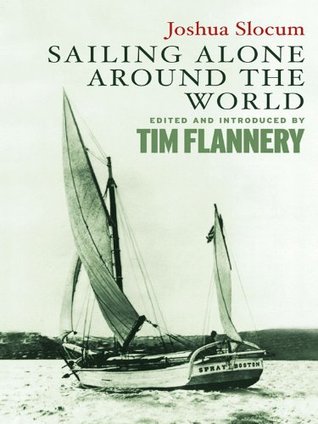More on this book
Community
Kindle Notes & Highlights
Read between
December 17 - December 19, 2023
The people of this coast, hardy, robust and strong, are disposed to compete in the world’s commerce, and it is nothing against the master mariner if the birthplace mentioned on his certificate be Nova Scotia.
My old chronometer, a good one, had been long in disuse. It would cost fifteen dollars to clean and rate it. Fifteen dollars! For sufficient reasons I left that timepiece at home, where the Dutchman left his anchor.
During these days a feeling of awe crept over me. My memory worked with startling power. The ominous, the insignificant, the great, the small, the wonderful, the commonplace—all appeared before my mental vision in magical succession. Pages of my history were recalled which had been so long forgotten that they seemed to belong to a previous existence.
The American consul, in a smart boat, came alongside before the Spray reached the breakwater, and a young naval officer, who feared for the safety of my vessel, boarded, and offered his services as pilot. The youngster, I have no good reason to doubt, could have handled a man-of-war, but the Spray was too small for the amount of uniform he wore.
I also mended the sloop’s sails and rigging, and fitted a jigger, which changed the rig to a yawl, though I called the boat a sloop just the same, the jigger being merely a temporary affair.
Between buns and doughnuts there was little difference except in name. Both had been fried in tallow, which was the strong point in both, for there was nothing on the island fatter than a goat, and a goat is but a lean beast, to make the best of it. So with a view to business I hooked my steelyards to the boom at once, ready to weigh out tallow, there being no customs officer to say ‘Why do you do so?’, and before the sun went down the islanders had learned the art of making buns and doughnuts.
To find local time is a simpler matter. The difference between local and standard time is longitude expressed in time—four minutes, we all know, representing one degree. This, briefly, is the principle on which longitude is found independent of chronometers. The work of the lunarian, though seldom practised in these days of chronometers, is beautifully edifying, and there is nothing in the realm of navigation that lifts one’s heart up more in adoration.
The chief of the Tongas and his family at Caini, returning my visit, brought presents of tapa cloth and fruits. Taloa, the princess, brought a bottle of coconut oil for my hair, which another man might have regarded as coming late.
The young lady seemed to lean to my way of thinking, and following up the story of the historical voyage asked if I had visited the point farther down the harbour where the great circumnavigator was murdered. This took my breath, but a bright schoolboy coming along relieved my embarrassment, for, like all boys, seeing that information was wanted, he volunteered to supply it. Said he: ‘Captain Cook wasn’t murdered ’ere at all, ma’am; ’e was killed in Hafrica: a lion et ’im.’
A pleasant visit from Admiral Sir Harry Rawson of the Royal Navy and his family brought to an end the Spray’s social relations with the Cape of Good Hope. The admiral, then commanding the South African Squadron, and now in command of the great channel fleet, evinced the greatest interest in the diminutive Spray and her behaviour off Cape Horn, where he was not an entire stranger. I have to admit that I was delighted with the trend of Admiral Rawson’s questions, and that I profited by some of his suggestions, notwithstanding the wide difference in our respective commands.
The view was certainly fine, but one has no wish to linger long to look in a calm at anything, and I was glad to note, finally, the short heaving sea, precursor of the wind which followed on the second day. Seals playing about the Spray all day, before the breeze came, looked with large eyes when, at evening, she sat no longer like a lazy bird with folded wings. They parted company now, and the Spray soon sailed the highest peaks of the mountains out of sight, and the world changed from a mere panoramic view to the light of a homeward-bound voyage.
If the Spray discovered no continents on her voyage, it may be that there were no more continents to be discovered; she did not seek new worlds, or sail to powwow about the dangers of the seas.
To find one’s way to lands already discovered is a good thing, and the Spray made the discovery that even the worst sea is not so terrible to a well-appointed ship.
To succeed, however, in anything at all, one should go understandingly about his work and be prepared for every emergency. I see, as I look back over my own small achievement, a kit of not too elaborate carpenters’ tools, a tin clock, and some carpet tacks, not a great many, to facilitate the enterprise as already mentioned in the story. But above all to be taken into account were some years of schooling, where I studied with diligence Neptune’s laws, and these laws I tried to obey when I sailed overseas; it was worth the while.


